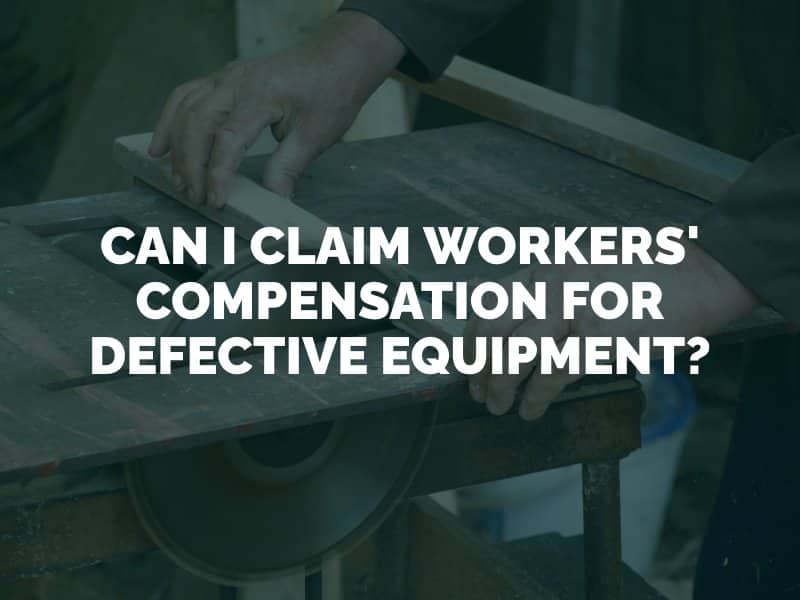Every day, a worker is injured or killed on the job in America. According to data from the Occupational Safety and Health Administration, 5,333 workers died in 2019. Millions of other workers suffered serious injuries. Among these accidents are those involving heavy machinery and equipment. While many equipment incidents are caused by human errors such as lack of maintenance, others stem from product defects. In Colorado, you have the right to claim workers’ compensation for injuries caused by defective equipment.

Every industry has equipment it relies upon. Some of this equipment is more dangerous than others, such as cranes and heavy machinery used at construction sites and industrial jobs. If a piece of equipment is defective or faulty, it poses an even greater risk of harm. Common types of equipment that experience problems include:
The injuries suffered by workers because of faulty machinery can be catastrophic, meaning they impact an important bodily function. Examples include broken bones, head injuries, brain injuries, spinal cord injuries, paralysis, crush injuries and amputations. If you or a loved one gets injured because of defective equipment, you may be entitled to financial compensation through one or more claims.
The Colorado workers’ compensation program is a no-fault system, meaning you don’t have to prove that someone else is responsible for causing your injury to be eligible for compensation. Workers’ comp covers almost any type of accident and injury that occurs while a worker is performing occupational tasks. This includes injuries and deaths caused by defective equipment. Here’s how to file a workers’ comp claim in Colorado:
The Division of Workers’ Compensation will review your claim and determine whether or not you qualify for benefits. You can appeal the decision, if desired. While workers’ compensation presents an easy way to make a financial recovery for a workplace equipment injury, it may not offer the maximum amount of compensation available.
A personal injury lawsuit in Colorado can yield greater financial results than a workers’ comp claim after an equipment incident, such as compensation for pain and suffering, 100 percent of your lost wages instead of two-thirds, and punitive damages. This additional coverage can be important if you suffered a catastrophic injury, such as the loss of a limb. If you are filing a lawsuit against someone other than your employer, such as a product manufacturer, you can seek reimbursement from both workers’ comp and the civil courts.
If an investigation of your workplace accident determines that a piece of equipment or machinery contained a product defect, you may have grounds to file a product liability lawsuit against the manufacturer or distributor. Most product liability lawsuits do not require proof of negligence. Instead, it is enough to show that the item contained a defect and caused the victim’s injuries.
You may also have grounds to file a personal injury lawsuit against your employer. It is an employer’s duty to ensure the relative safety of work-related equipment, such as by properly maintaining the machine and offering safety training to workers. If an employer fails to take these steps – resulting in an equipment injury or death – the employer can be held financially responsible. You cannot sue your employer after accepting a workers’ comp settlement, however. This is why it is important to discuss your options with a lawyer before signing anything. Contact Fang Law Firm to learn more.